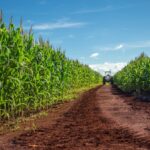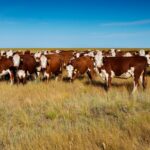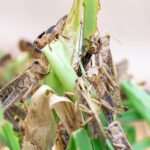Maize is one of the most important staple crops in South Africa, both as a food source and a key contributor to the agricultural economy. Whether you’re a smallholder farmer looking to diversify or a beginner with land and ambition, starting maize farming can be a rewarding venture. However, success in maize production depends on careful planning, knowledge of the climate and soil, and a clear understanding of the market.
Maize grows best in warm weather with moderate rainfall. In South Africa, the main maize-producing regions are the Free State, Mpumalanga, North West, Limpopo, and KwaZulu-Natal. These areas offer the ideal combination of temperature and rainfall for healthy crop growth. Before planting, it’s important to assess the climatic conditions of your land. You can consult your local Department of Agriculture office for guidance on the suitability of your area for maize production.
Land preparation is a crucial step. The soil should be well-drained, fertile, and rich in organic matter. Maize thrives in sandy loam or clay loam soils with a pH between 5.5 and 7.5. Begin by clearing the land of weeds, stumps, and any plant debris. Plough the soil to loosen it and improve aeration. Adding compost or manure enhances soil fertility, and lime can be applied if soil testing indicates acidity. A proper soil test is recommended to determine nutrient levels and make informed decisions on fertiliser use.
Selecting the right seed is another key factor in achieving good yields. In South Africa, you can choose between white maize for human consumption and yellow maize for animal feed. It’s advisable to use certified hybrid seeds from reputable suppliers. Consider the yield potential, resistance to diseases and pests, maturity period, and the seed’s adaptability to your region’s climate. Some commonly used hybrid varieties include PAN, PANNAR, and SeedCo.
Timing your planting is essential. The planting season usually begins in October and can run through December, depending on the specific region. The soil should have sufficient moisture before planting. Seeds should be planted 25 to 30 cm apart in rows spaced 75 to 90 cm apart and sown about 4 to 5 cm deep. You’ll need about 20 to 25 kilograms of seed per hectare. For larger farms, mechanised planters can save time and labour.
Maize requires a good fertilisation plan to achieve optimum yields. Apply a basal fertiliser like NPK at planting, followed by top-dressing with LAN or urea when the plants reach knee height and again before tasseling. Water is also critical, especially in drier areas. If natural rainfall is insufficient, consider using irrigation methods like sprinklers or drip systems to maintain consistent moisture levels.
Pests and diseases can pose serious challenges. Common problems include maize stalk borer, cutworms, and leaf diseases like rust or blight. Preventative measures such as crop rotation, timely planting, and selecting resistant varieties can help. Regular field inspections are necessary to catch issues early. Where needed, apply appropriate pesticides or organic treatments based on professional recommendations.
Harvesting takes place when the maize kernels are hard and the husks are dry and brown, usually from May to July. Depending on the size of your operation, harvesting can be done by hand or with machinery. After harvesting, maize must be dried properly to reduce moisture content to below 13%, ensuring it can be stored without spoilage.
Before you plant, it’s wise to research your market options. You can sell maize to local markets, cooperatives, millers, or feed manufacturers. Prices fluctuate with the season, so storing your maize until prices improve can increase profits. Good storage conditions are essential for maintaining quality and avoiding losses.
Starting a maize farming business in South Africa requires dedication, planning, and an eagerness to learn. By understanding your region’s climate, choosing quality seeds, managing your soil well, and actively controlling pests and diseases, you can build a sustainable and profitable operation. With consistent effort, maize farming can grow from a small venture into a successful agribusiness.
Join 'Farmers Mag' WhatsApp Channel
Get the latest Farming news and tips delivered straight to your WhatsApp
CLICK HERE TO JOIN






